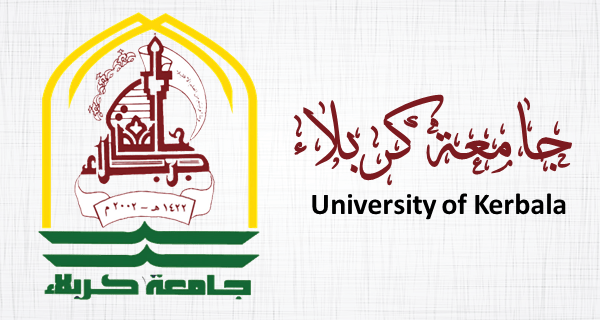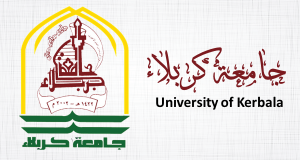Dr. Bahaa Aldeen Abdalrahman Hadi
Lecturer /college of medicine
Abstract:
Each year, millions of followers travel to Karbala, a city in Iraq that holds great religious importance for Shiite Muslims. Religious tourism is vital for the local economy. Still, so many visitors create problems for the area, such as ensuring there are enough resources for everyone without damaging the environment or spending too much money on infrastructure. There will be little use for when pilgrim numbers drop. A new study explores this issue by looking at what kinds of development might best suit both needs and how environmental conservation efforts could benefit from being linked with those aimed at improving social conditions (and vice versa). Researchers say their work provides insights into the complexities of managing resources in places of worship and offers valuable lessons applicable to other destinations frequented by religious travelers.
Introduction:
In central Iraq, there is a city called Karbala, which means a lot to Shia Muslims all around the world for religious reasons. Every year, millions go on pilgrimage to visit the shrines in Karbala of Imam Hussein and Abbas, who are significant figures in Shia history – especially during religious events like Arbaeen. Global travel for religious reasons has had many effects on the city; it has become a major destination for such trips, making it much richer and changing the way things look there and society itself. Although this type of tourism must be suitable for local finances, there are worries about whether these changes can continue to be good in the long term, i.e., whether they can carry on happening without causing problems for future generations either environmentally or socially. So what we want to find out in our research project is more about this complicated issue: does having lots of people come for religious reasons help a city grow sustainably when they spend money there?
The Significance of Religious Tourism in Karbala:
In 680 AD, the Battle of Karbala took place, and it was an important moment in Shia history because it was when Imam Hussein died. He was the grandson of Prophet Muhammad. Now, shrines that remember Imam Hussein and Abbas, who were Hussein’s half-brothers, are places where Shias from all over the world go on pilgrimage. Many people visit these shrines every year, but numbers rise dramatically at certain times. For example, more than 20 million people go to Arba’een. (Hussein and Abbas were brothers. Al-Humairi & Hashim (2021) say that the religious importance of these shrines means they are very busy throughout the year with people who come to them for religious reasons.
The role of the economy in Karbala is heavily influenced by pilgrimage. Jobs are created in many industries when people visit – places to stay, food to eat, ways to get around, and religious things to buy (Al-Jubouri, 2019). All this business also means that there is lots of building work going on; new roads or hotels are put up regularly because of pilgrims’ needs. However, with such quick expansion going forward, questions have been raised about whether these changes can be sustained over a more extended period.
Environmental Challenges Posed by Religious Tourism:
Managing waste in Karbala becomes a big problem when many people come simultaneously, like during religious holidays. These times create a lot of rubbish – like plastic bottles and bags, and stuff that gets thrown away from food they have eaten. A lot of sewage was produced during these periods. Currently, there aren’t enough places for all this rubbish to go. So, it either sits where it has been dumped – sometimes spreading disease or ends up in rivers and streams, which makes them dirty… as well as being an eyesore alongside holy sites. (Al-Khafaji et al., 2020).
Water scarcity in Iraq is made worse by spikes in demand throughout pilgrimage seasons. Both locals and pilgrims face problems because there’s not enough water for everyone when they need it most – showing that new ways to manage water resources are badly needed. At the same times of peak seasons, the amount of energy used also goes up a lot: this creates more air pollution along with
Socio-economic Impacts and Sustainability Concerns:
Greenhouse gases are causing climate change. Religious tourists leave behind a damaging “environmental footprint” too: all these things together have adverse effects that need to be reduced, if possible, through greener technologies or practices. Although pilgrimage brings money to cities and countries, we must question whether continuing at this rate is sustainable. For instance, many people find themselves employed precariously in jobs like driving cabs or working in restaurants each year as soon as there is no longer work building hotels or shops for incoming worshippers (Al-Jubouri 2019). Uncontrolled buildings due to rapid tourist development may spread out so far from its center area into farm fields, affecting villages along its route: if these places grow too quickly, social ties break down, and services such as water supplies become overused, leading locals and newcomers to hardship. As a result, the place does not grow or develop other services such as hospitals and schools as it should.
Strategies for Sustainable Religious Tourism in Karbala:
In order to achieve both economic gains from religious tourism and environmental/social sustainability, a multifaceted strategy is necessary. One key factor is setting up good waste management – for example, by recycling as much as possible and composting anything that can’t be reused (Al-Ansari et al., 2022). Another aspect involves saving water by installing special devices to use less of it or finding new sources altogether; this is important because there may not always be enough water around when lots have been taken from rivers/lakes, etc. A third element: cutting down on how much energy tourists use while they’re holidaying will also help make their trip more sustainable overall – plus, if the power comes from renewable sources like sunlight or wind, then even better!
It is crucial to create a tourism management strategy that looks at how many visitors the area can cope with – and encourages people to visit responsibly (United Nations Environment Programme, 2018). If pilgrims are not the only ones catered for but their trips are spread across the year, it may also be possible to provide more jobs in tourism – that last the whole year round. A fair distribution of the benefits from tourism – both for today’s population and for those who will come after us: Lots more local people could get a say in decision-making plus a fairer share of the money.
Conclusion:
Balancing economic gain and environmental concerns in Karbala’s sacred tourist industry needs a sustainable approach that considers the town holistically. If waste management is improved, water shortages are tackled, renewable energy is promoted, governance is enhanced, and visitor attractions are diversified. It’s possible to have your kebab and eat it – boosting the well-being of residents over time plus preserving cultural sites for future generations. Indeed, by managing things correctly, those making pilgrimages may even come to see ecological virtue as a form of piety, too (while local people will also benefit from cleaner air and water).
References:
Al-Ansari, N., Knutsson, S., & Abbas, A. (2022). Solid waste management challenges and opportunities in religious mass gatherings: A case study of Karbala, Iraq. Waste Management, 241, 114581.
Al-Humairi, A. H., & Hashim, A. M. (2021). The impact of religious tourism on the economic development of Karbala city. International Journal of Innovation and Economic Development, 7(4), 1-10.
Al-Jubouri, S. H. (2019). Socio-economic impacts of religious tourism in Karbala, Iraq. Journal of Tourism and Hospitality Management, 7(1), 1-12.
Al-Khafaji, A. A., Ismail, S. N. S., & Al-Shammari, S. A. (2020). Environmental impact assessment of religious tourism activities in Karbala, Iraq. Environmental Monitoring and Assessment, 192(1), 1-16.
UNEP. (2018). Towards a Green Economy: Pathways to Sustainable Development and Poverty Eradication. United Nations Environment Programme.





























































